Idea by
Serina Kitazono, Kristin Laz
Call for ideas 2021
Tourism Suburbia
Tourism Suburbia
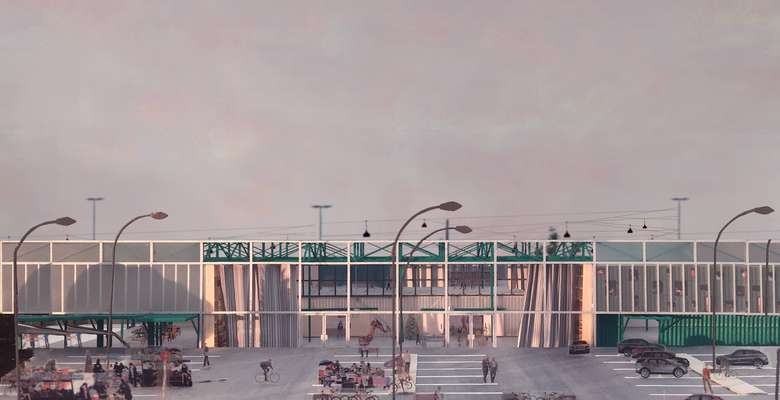
- Systemic changes
The tourism industry is defined as the business of attracting, accommodating and entertaining tourists for the sake of economic growth. While it is key in times of financial instability, its significant boom in the 21st Century has led to the phenomenon of overtourism. Not only does this issue exceed local and global consumption capacities, but it has deteriorated the experience of cities for both locals and tourists alike. In our project Tourism Suburbia we questioned whether we could subvert the traditional narrative of tourist consumption. Based in Copenhagen, one of Europe’s fastest growing tourism destinations, Tourism Suburbia intends to take pressure away from the city centre by providing collective spaces and activities in the suburbs for both permanent and temporary residents. It prioritises the rights and well-being of local communities while simultaneously creating an authentic experience for visitors; nurturing care and awareness of the environment and each other.
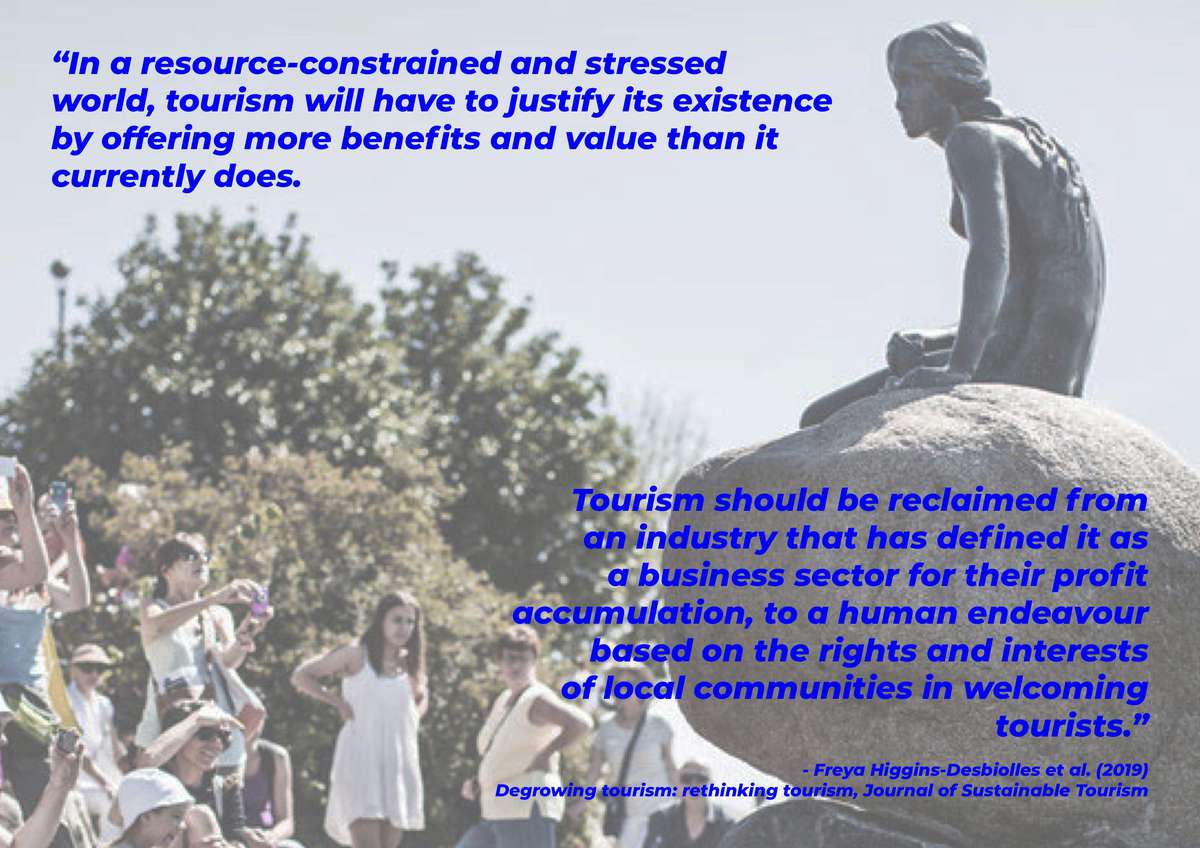
As middle class tourism and its market grows globally, so does resource consumption, environmental damages and inequality. What is temporary escapism for the tourist is a burdening reality for local communities, which include strained infrastructure, overcrowding and exploitation of the property market. A rethink for the way in which cities deal with over tourism is critical, as the current pressures are hugely unsustainable for decades to come and cannot be justified by economic growth alone.
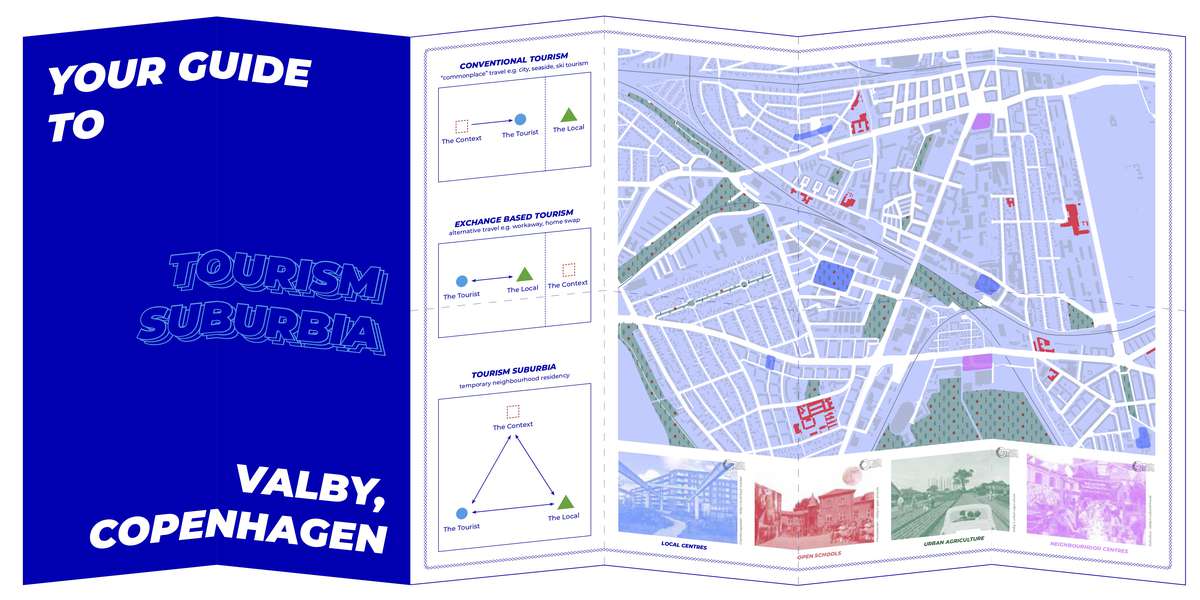
Tourism Suburbia is a post-growth perspective on tourism, a framework for collective infrastructures on neighbourhood level, rethinking the relationship between tourists, locals and their environment. Local produce, youth and educational centers, recycling stations, open workshops, etc. are understood as community landmarks for both residents and visitors. Connected through a network platform of local initiatives, businesses and institutions, they facilitate community well-being and local econom
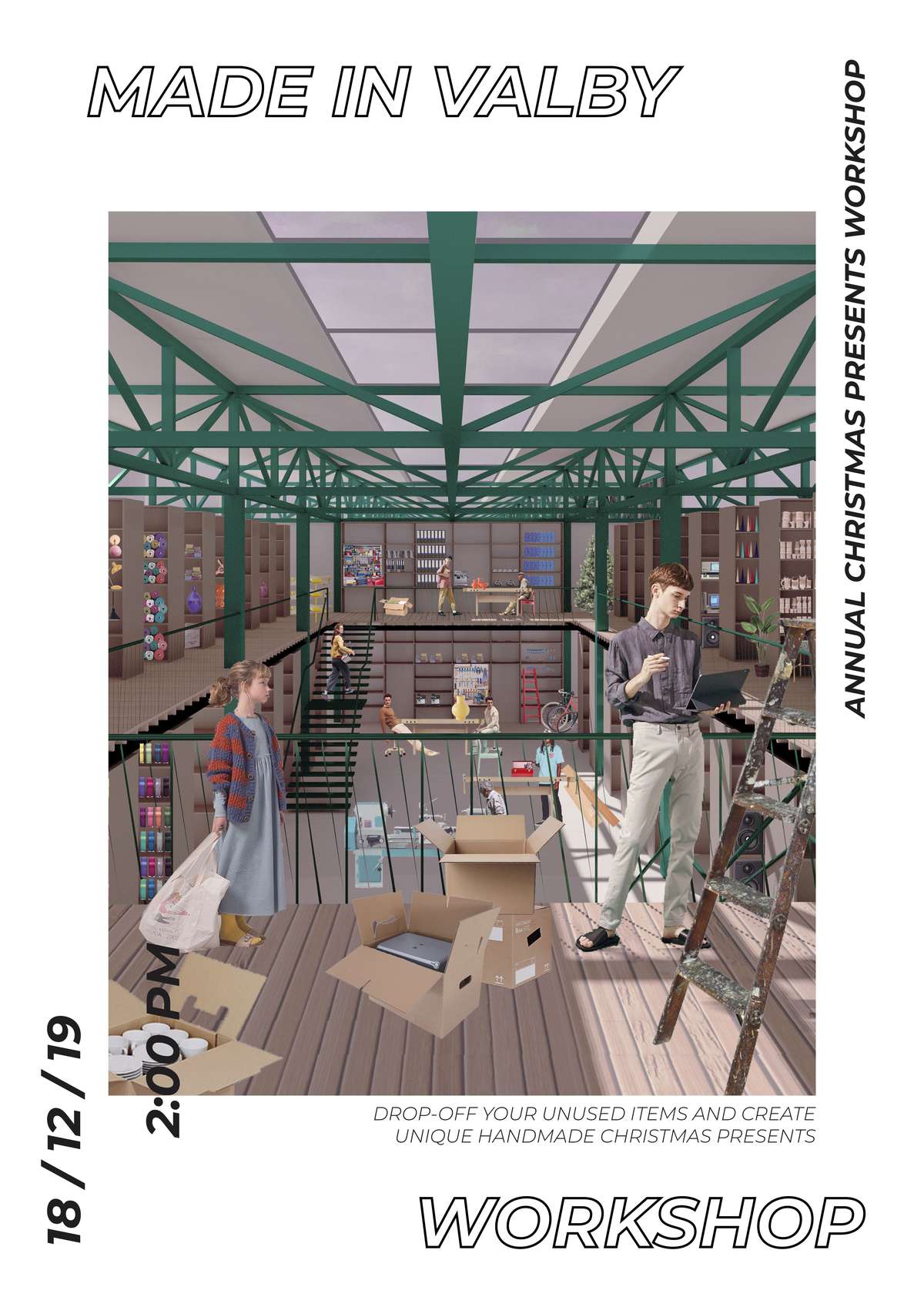
For this project, we demonstrated one typology of the network in Valby, Copenhagen. In this instance, we propose a design that enables the tourist to partake in an open workshop which plays on the classic genbrugsstation, or ‘take and leave’ typology of Copenhagen. The ‘Made in Valby’ workshop enables residents to experiment with concepts of self-sufficiency and conscious resource consumption on a neighbourhood scale, while at the same time providing visitors with an authentic experience.
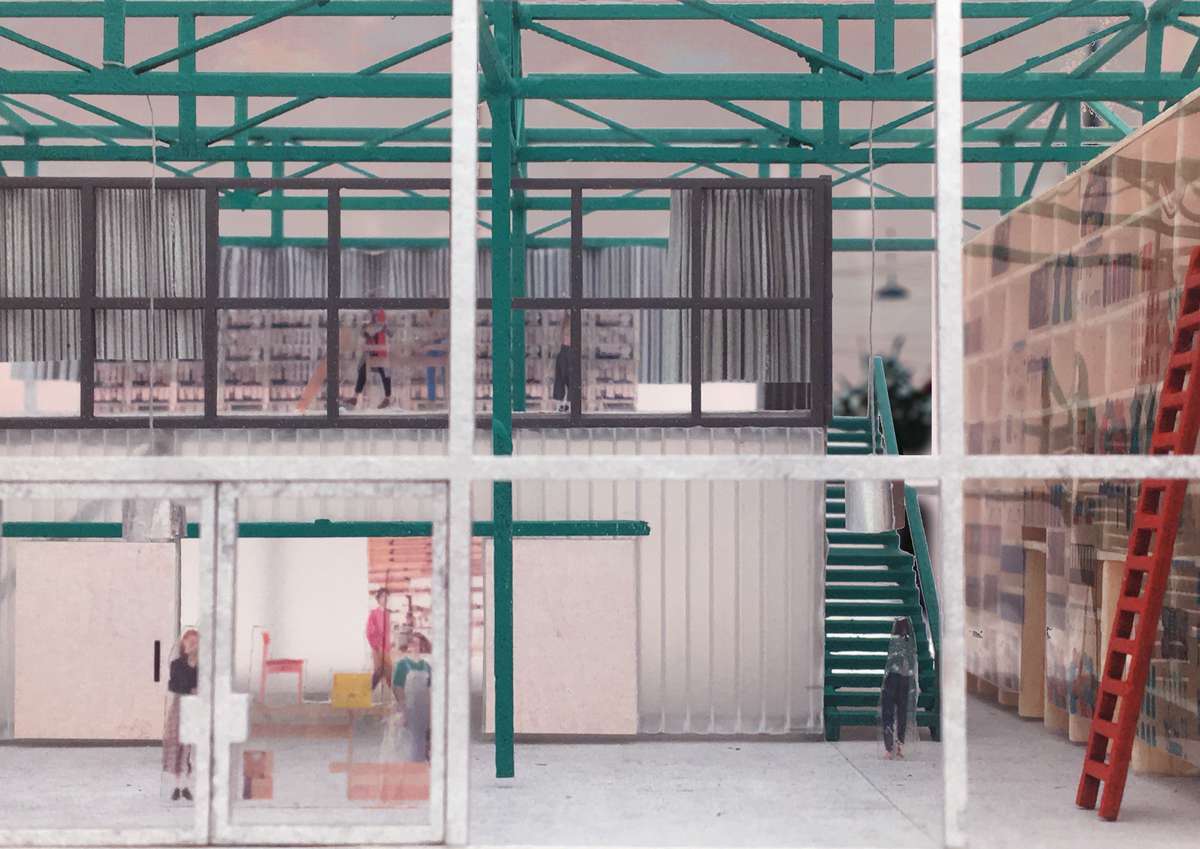
A single volume envelopes three spaces that define the stages within the programme; a material bank, an open workshop and a market, which both users and visitors can be guided through.
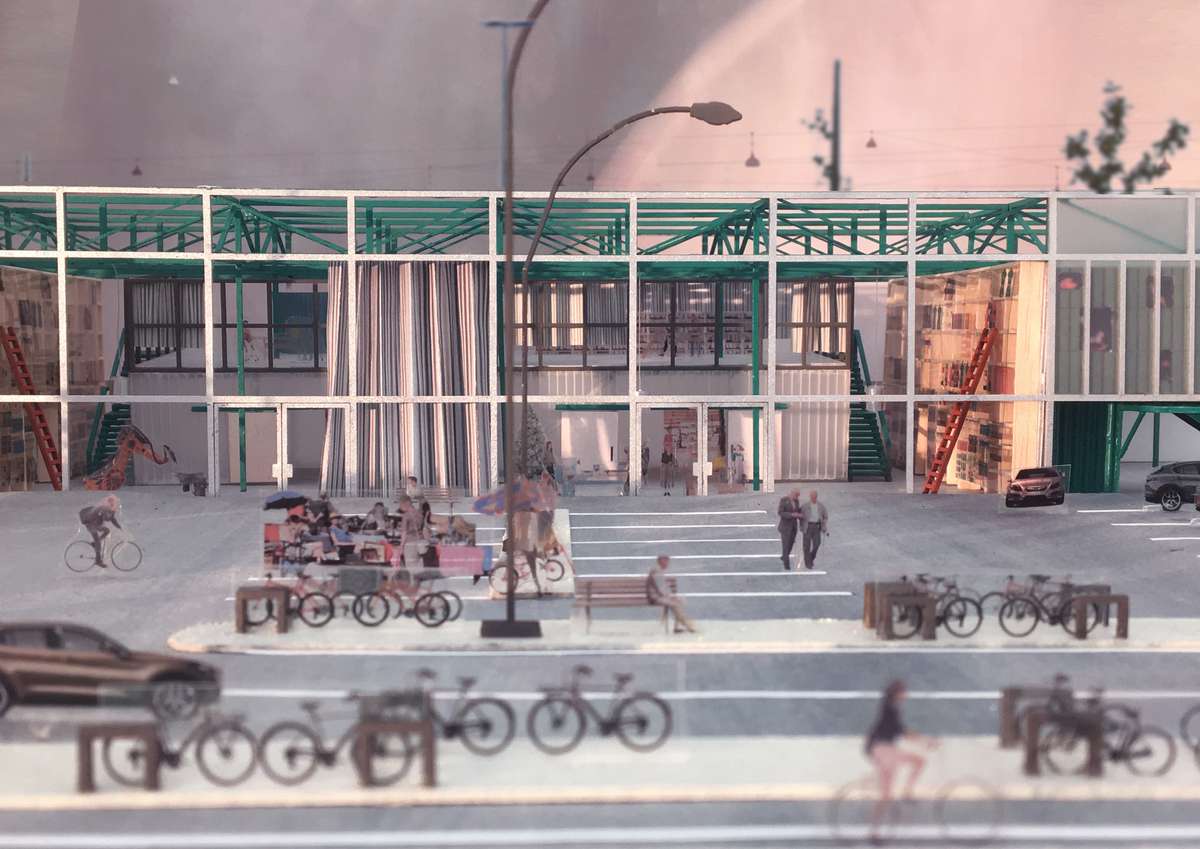
Providing the infrastructure that enables locals and visitors to build up a de-growth tourism might be the transversal that connects the two parallel realms, and triggers a transformation of conventional consumption behaviors.
Tourism Suburbia
Tourism Suburbia

- Systemic changes
The tourism industry is defined as the business of attracting, accommodating and entertaining tourists for the sake of economic growth. While it is key in times of financial instability, its significant boom in the 21st Century has led to the phenomenon of overtourism. Not only does this issue exceed local and global consumption capacities, but it has deteriorated the experience of cities for both locals and tourists alike. In our project Tourism Suburbia we questioned whether we could subvert the traditional narrative of tourist consumption. Based in Copenhagen, one of Europe’s fastest growing tourism destinations, Tourism Suburbia intends to take pressure away from the city centre by providing collective spaces and activities in the suburbs for both permanent and temporary residents. It prioritises the rights and well-being of local communities while simultaneously creating an authentic experience for visitors; nurturing care and awareness of the environment and each other.
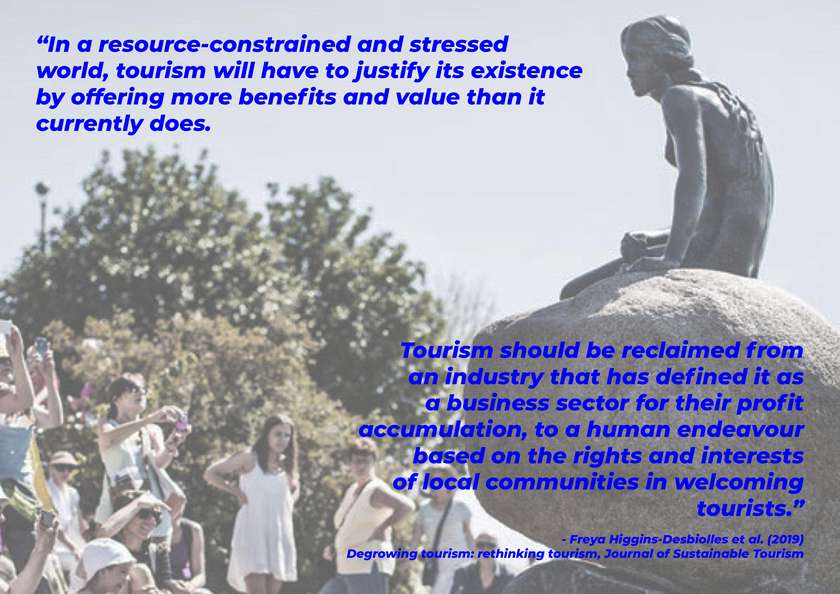
As middle class tourism and its market grows globally, so does resource consumption, environmental damages and inequality. What is temporary escapism for the tourist is a burdening reality for local communities, which include strained infrastructure, overcrowding and exploitation of the property market. A rethink for the way in which cities deal with over tourism is critical, as the current pressures are hugely unsustainable for decades to come and cannot be justified by economic growth alone.
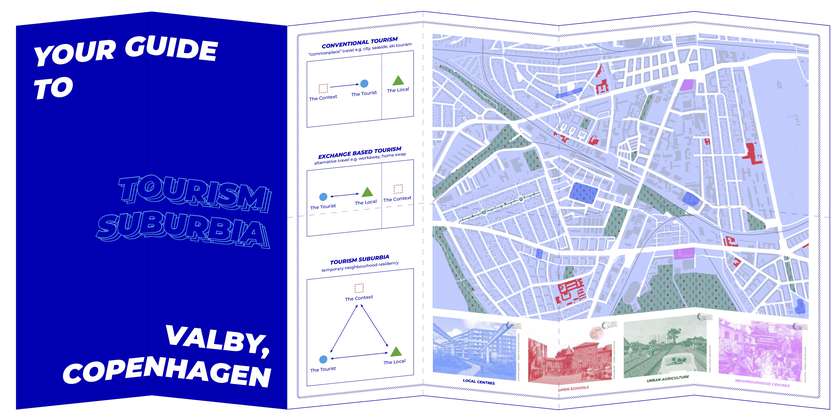
Tourism Suburbia is a post-growth perspective on tourism, a framework for collective infrastructures on neighbourhood level, rethinking the relationship between tourists, locals and their environment. Local produce, youth and educational centers, recycling stations, open workshops, etc. are understood as community landmarks for both residents and visitors. Connected through a network platform of local initiatives, businesses and institutions, they facilitate community well-being and local econom
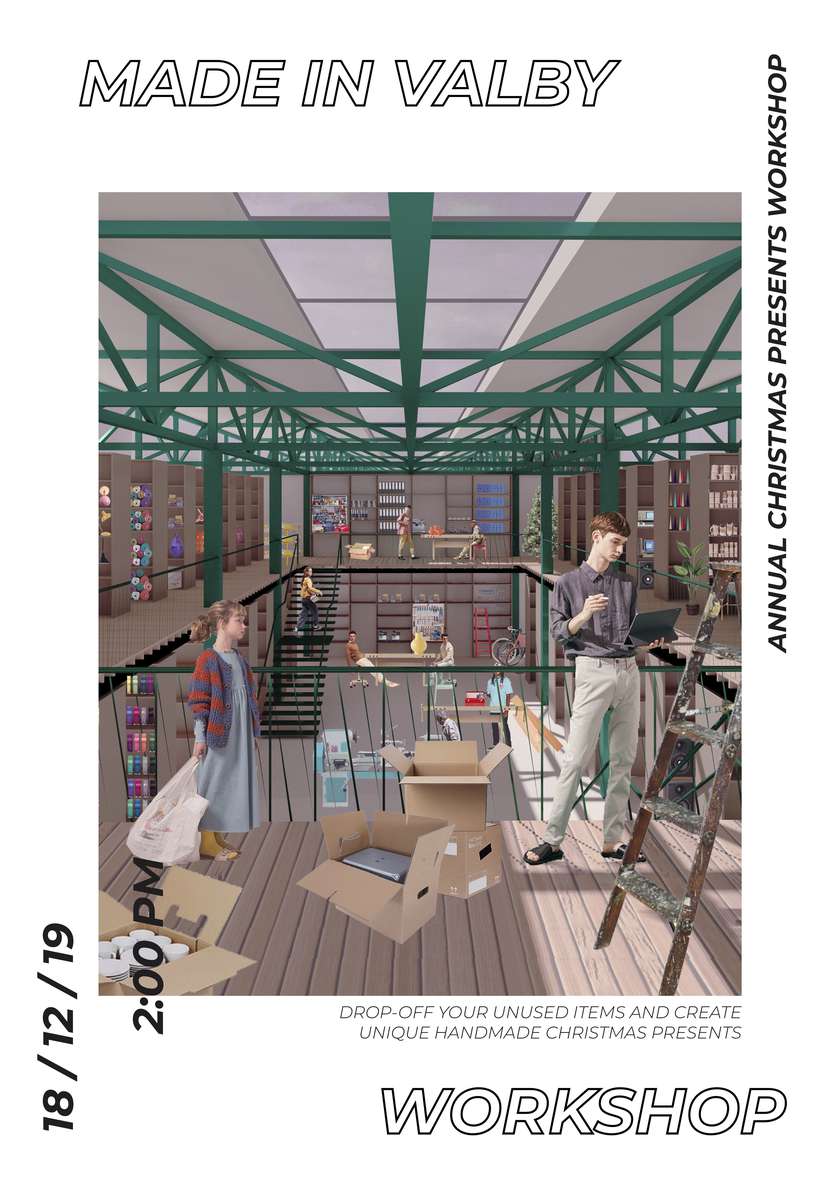
For this project, we demonstrated one typology of the network in Valby, Copenhagen. In this instance, we propose a design that enables the tourist to partake in an open workshop which plays on the classic genbrugsstation, or ‘take and leave’ typology of Copenhagen. The ‘Made in Valby’ workshop enables residents to experiment with concepts of self-sufficiency and conscious resource consumption on a neighbourhood scale, while at the same time providing visitors with an authentic experience.
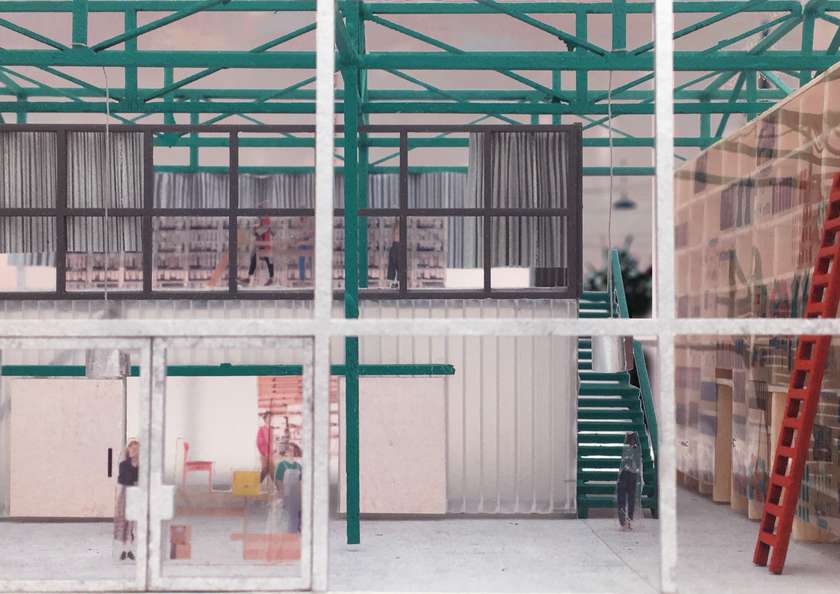
A single volume envelopes three spaces that define the stages within the programme; a material bank, an open workshop and a market, which both users and visitors can be guided through.
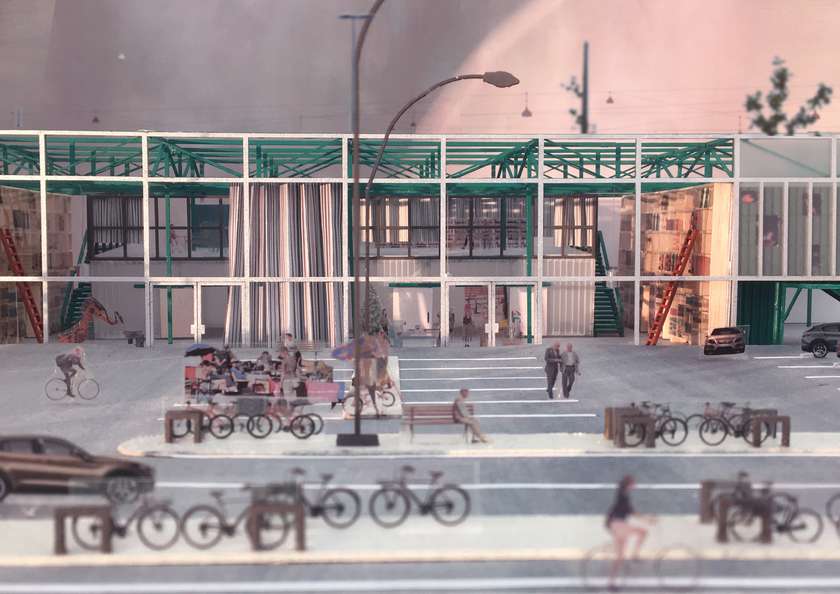
Providing the infrastructure that enables locals and visitors to build up a de-growth tourism might be the transversal that connects the two parallel realms, and triggers a transformation of conventional consumption behaviors.